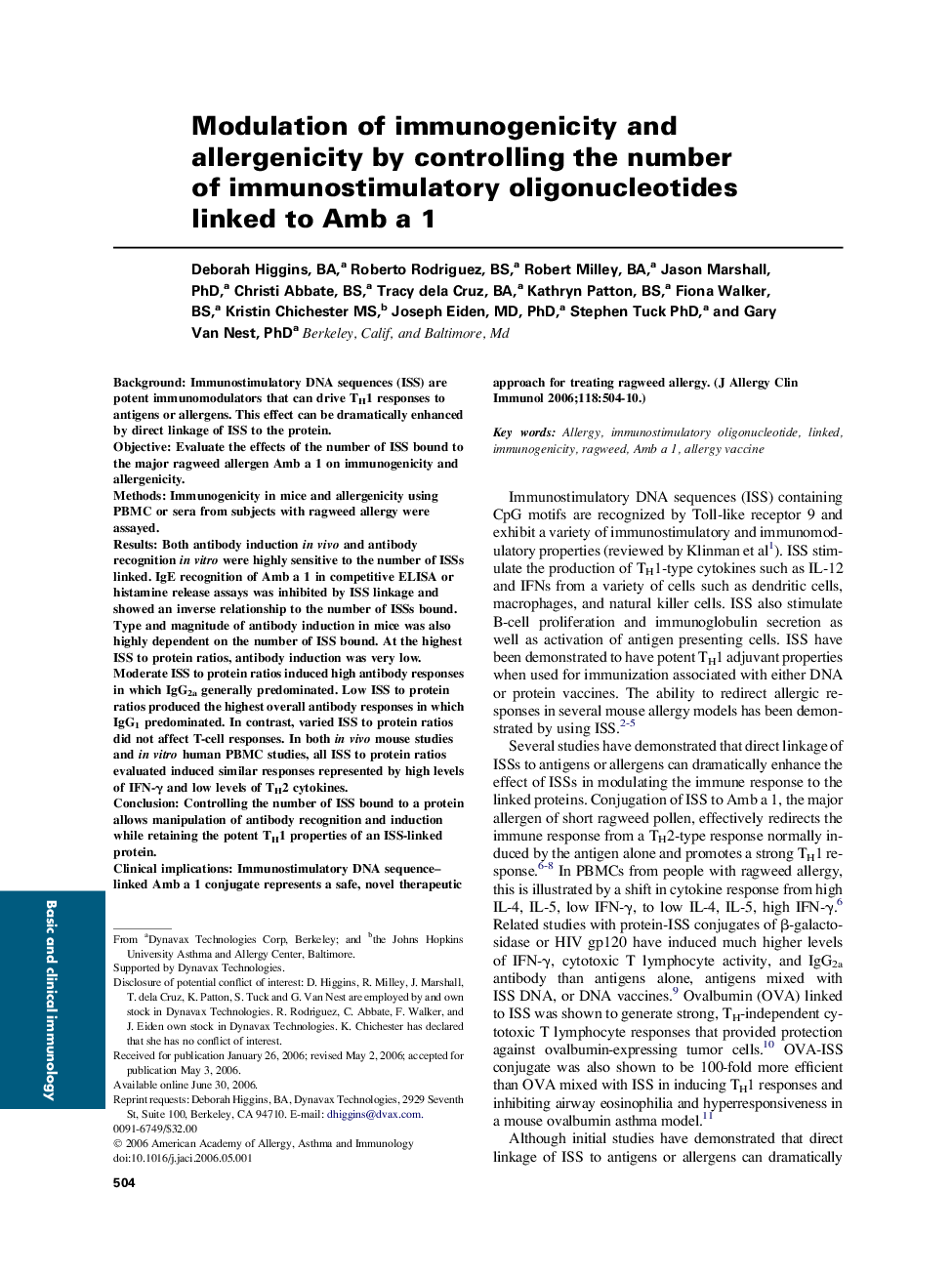| Article ID | Journal | Published Year | Pages | File Type |
|---|---|---|---|---|
| 3203003 | Journal of Allergy and Clinical Immunology | 2006 | 7 Pages |
BackgroundImmunostimulatory DNA sequences (ISS) are potent immunomodulators that can drive TH1 responses to antigens or allergens. This effect can be dramatically enhanced by direct linkage of ISS to the protein.ObjectiveEvaluate the effects of the number of ISS bound to the major ragweed allergen Amb a 1 on immunogenicity and allergenicity.MethodsImmunogenicity in mice and allergenicity using PBMC or sera from subjects with ragweed allergy were assayed.ResultsBoth antibody induction in vivo and antibody recognition in vitro were highly sensitive to the number of ISSs linked. IgE recognition of Amb a 1 in competitive ELISA or histamine release assays was inhibited by ISS linkage and showed an inverse relationship to the number of ISSs bound. Type and magnitude of antibody induction in mice was also highly dependent on the number of ISS bound. At the highest ISS to protein ratios, antibody induction was very low. Moderate ISS to protein ratios induced high antibody responses in which IgG2a generally predominated. Low ISS to protein ratios produced the highest overall antibody responses in which IgG1 predominated. In contrast, varied ISS to protein ratios did not affect T-cell responses. In both in vivo mouse studies and in vitro human PBMC studies, all ISS to protein ratios evaluated induced similar responses represented by high levels of IFN-γ and low levels of TH2 cytokines.ConclusionControlling the number of ISS bound to a protein allows manipulation of antibody recognition and induction while retaining the potent TH1 properties of an ISS-linked protein.Clinical implicationsImmunostimulatory DNA sequence–linked Amb a 1 conjugate represents a safe, novel therapeutic approach for treating ragweed allergy.
